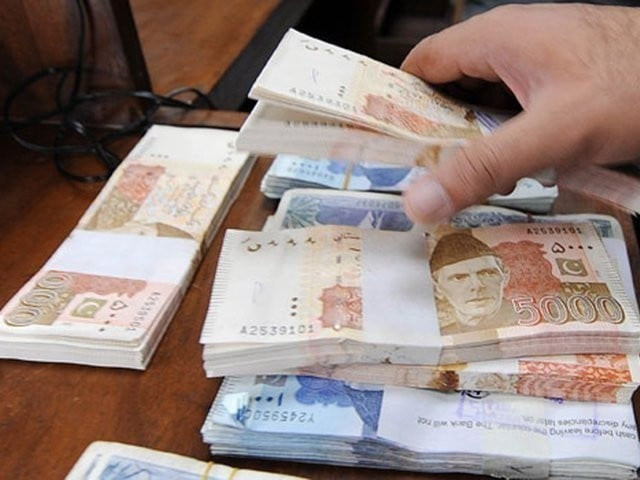Receipts of nearly two-thirds of tax units fall
Of the 23 LTUs and RTOs, 14 report negative growth in collection of direct taxes

Of the 23 LTUs and RTOs, 14 report negative growth in collection of direct taxes. PHOTO: FILE
Out of total 23 Large Taxpayer Units (LTUs) and Regional Tax Offices (RTOs), 14 have reported a negative growth in collection of direct taxes for the period July to March of the current fiscal year, according to official statistics.
A few of them saw up to one-third reduction in their tax collection as compared with nine months of the previous fiscal year.
Only nine field formations showed a positive growth in income tax collection and all of them, except for one, witnessed only single-digit increase, showed statistics of the Federal Board of Revenue (FBR). For operational purposes, the FBR collects its taxes through four LTUs and 19 RTOs.
Out of four, only one LTU - Karachi-I - that deals with big firms, posted a nominal increase of less than 1% in revenue collection. Even this performance was the result of advances taken from the big firms.
Out of the Rs161-billion collection by the Karachi LTU-I, Rs100 billion was on account of advances while the rest of the amount was collected through withholding taxes, standing at Rs55 billion.
Despite OECD data, FBR fails to increase tax collection
Overall, the FBR collected Rs975 billion in net direct taxes from July through March of the current fiscal year, lower by Rs58 billion when compared with the last fiscal year.
Prime Minister Imran Khan had vowed to double the federal government’s tax collection to Rs8 trillion, but so far his government is struggling to maintain the tax collection level left behind by the previous PML-N government. Instead of taking corrective administrative and policy measures, the government has decided to take a $400-million loan from the World Bank in the name of improving tax collection.
The Pakistan Tehreek-e-Insaf (PTI) government has blamed the poor performance on the decision of reducing the individual income tax rates, Supreme Court’s decision that barred telecom companies from collecting withholding taxes on pre-paid mobile phone cards and lower budgetary releases for development spending.
However, this week, the Supreme Court lifted the embargo on tax collection from mobile phone subscribers.
Similar excuses had also been given by the PML-N government that suggests that the PTI has started toeing the line of bureaucracy.
A deeper look at the numbers reveal that the FBR’s direct tax collection was either going down or remained flat against many of the tax heads. Some of the areas facing shortfall that are common in almost every field formation are transport sector, banking sector, dividend income (minus 14%), minimum income tax, capital gains tax (negative 83%), steel melters (negative 38%), advance tax from non-residents (negative 96%), tax collection from builders and developers, registration of new cars, stock exchange, dealers’ commission and insurance premium.
Sources said weak administrative controls had led to a situation where some chief commissioners - the administrative heads of the LTUs and RTOs - were indulging in unethical practices.
The official data showed that the RTO Peshawar witnessed a 6.5% reduction in tax collection and could collect only Rs26 billion. The RTO Abbottabad collected mere Rs3.8 billion worth of direct taxes, down 18.4%.
The LTU Islamabad, which saw a dip of Rs16 billion or 12.3% in income tax collection, received Rs113.7 billion, largely because of court’s decision to suspend mobile phone taxes. The LTU Lahore also took a hit of Rs10 billion compared with last year’s collection and generated Rs48 billion in nine months.
The RTO Multan saw its income tax revenues go down nearly 6% to only Rs29.6 billion. The RTO Sukkur, one of the problematic zones, could receive only Rs8.3 billion, which was 6% less than the collection in last fiscal year’s comparative period.
The RTO Hyderabad’s income tax revenues dipped one-third to just Rs14.2 billion. The RTO Quetta also failed to sustain even last year’s collection and its revenues decreased 23% to Rs13.2 billion.
Similarly, the RTO Rawalpindi’s income tax collection dipped over 8% to Rs31.1 billion, RTO Sargodha’s collection dropped over 18% to only Rs5.2 billion, RTO Bahawalpur’s revenue collection decreased over 17% to just Rs7.4 billion.
Karachi RTO-III saw nearly one-third reduction in income tax collection that stood at only Rs44.6 billion. The Lahore RTO-II also saw one-tenth reduction in income tax collection and got only Rs57 billion. The Karachi LTU-II witnessed a nominal fall and it received Rs112.7 billion in income tax.
Among the field formations that still posted growth in income tax collection, the RTO Sahiwal was on top of the list that recorded an 18% increase, although its total revenues stood at only Rs4 billion. The RTO-II Karachi’s income tax revenues grew 3.6% to Rs60.5 billion.
The RTO-I Karachi, although problematic, saw 5.3% increase in its collection to Rs93.2 billion.
RTO Faisalabad’s collection of direct taxes increased marginally to Rs19.2 billion. RTO Sialkot saw only 2% growth and collected Rs8.3 billion; RTO Lahore registered 8.7% growth in income taxes and generated Rs54.3 billion.
The RTO Gujranwala collected Rs9 billion with 7% growth and RTO Islamabad collected Rs50.6 billion and posted 4.5% growth.
Overall, the FBR faced a shortfall of over Rs300 billion in tax collection, which led to a budget deficit of 4.2% of GDP or Rs1.61 trillion during July-March FY19.
Published in The Express Tribune, April 28th, 2019.
Like Business on Facebook, follow @TribuneBiz on Twitter to stay informed and join in the conversation.



















COMMENTS
Comments are moderated and generally will be posted if they are on-topic and not abusive.
For more information, please see our Comments FAQ